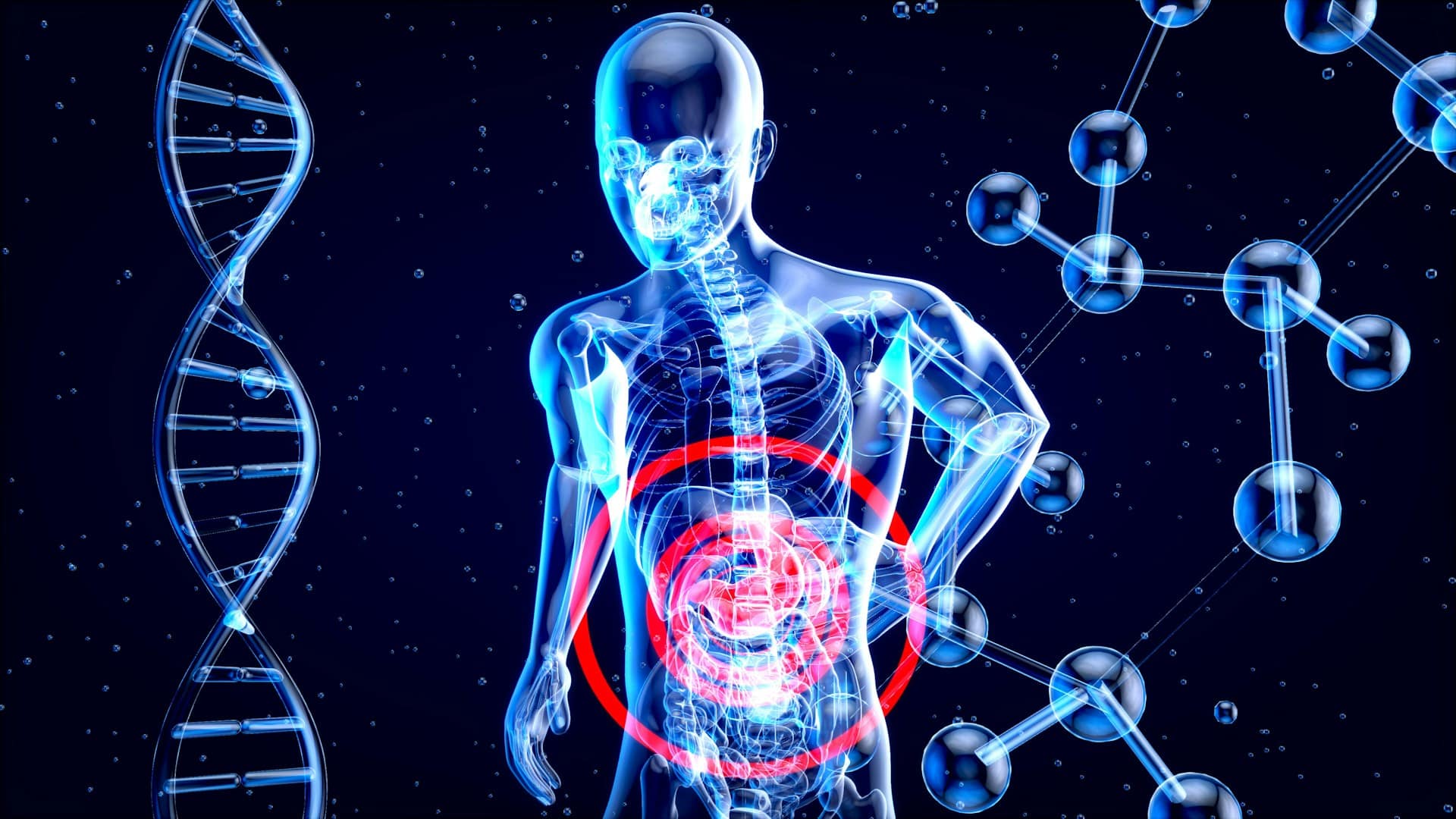Unraveling the Gut-Brain Connection: How Your Gut Health Impacts Mental Well-being
In recent years, scientists have been uncovering a fascinating link between the gut and the brain, revealing that our digestive system doesn’t just influence physical health but plays a crucial role in mental well-being too. This intricate connection, often referred to as the “gut-brain axis,” highlights the profound impact of gut health on various aspects of mental health, including mood regulation, stress response, and cognitive function. In this comprehensive guide, we’ll explore the science behind the gut-brain connection, its implications for mental well-being, and practical steps you can take to support a healthy gut and a happier mind.
Understanding the Gut-Brain Connection

The Role of Gut Microbiota
Your gut is not just a tube that processes food; it’s a bustling ecosystem teeming with trillions of microorganisms collectively known as the gut microbiota. These microbes are essential for various bodily functions, including digestion, nutrient absorption, and immune system regulation. However, recent research has unveiled an even more intriguing aspect of these gut inhabitants: their ability to communicate with the brain.
How Gut Microbiota Communicate with the Brain
Emerging studies have highlighted the intricate pathways through which gut microbes interact with the brain. These pathways include the nervous system, immune system, and the production of neurotransmitters. For example, certain gut bacteria can produce neurotransmitters like serotonin, dopamine, and gamma-aminobutyric acid (GABA), all of which play crucial roles in mood regulation and emotional well-being.
To support a healthy gut microbiota and optimize its communication with the brain, incorporating probiotic-rich foods into your diet can be beneficial. Foods like yogurt, kefir, sauerkraut, and kimchi contain beneficial probiotics that can promote a diverse and balanced gut microbiota. Additionally, consuming prebiotic foods, such as garlic, onions, bananas, and asparagus, can provide nourishment for the beneficial bacteria in your gut, further supporting their communication with the brain.
Neurotransmitter Production
One fascinating aspect of the gut-brain connection is the role of gut microbiota in neurotransmitter production. Neurotransmitters are chemical messengers that transmit signals between neurons in the brain and are essential for regulating various bodily functions, including mood, sleep, and appetite.
Certain species of gut bacteria have been found to produce neurotransmitters such as serotonin, dopamine, and GABA. Serotonin, often referred to as the “happiness hormone,” is particularly intriguing as it is primarily produced in the gut. This finding underscores the significance of gut health in maintaining emotional well-being and mood stability.
To support optimal neurotransmitter production and promote mental well-being, incorporating a balanced diet rich in nutrients that support neurotransmitter synthesis is essential. Foods high in tryptophan, such as turkey, chicken, nuts, and seeds, can provide the building blocks for serotonin production. Additionally, consuming foods rich in omega-3 fatty acids, such as fatty fish, flaxseeds, and walnuts, may help support dopamine production, further contributing to mood regulation.
The Immune System and Inflammation
A healthy gut microbiota plays a crucial role in maintaining a balanced immune response and reducing inflammation throughout the body. Conversely, dysbiosis, or an imbalance in gut bacteria, can lead to chronic inflammation, which has been linked to various mental health conditions, including depression and anxiety.
Gut dysbiosis can trigger a cascade of inflammatory responses in the body, leading to increased permeability of the intestinal barrier, commonly referred to as “leaky gut.” This increased intestinal permeability allows harmful bacteria and toxins to enter the bloodstream, further exacerbating inflammation and potentially impacting brain function and mental well-being.
To support a healthy immune system and reduce inflammation, focusing on gut health is paramount. Consuming anti-inflammatory foods such as fruits, vegetables, whole grains, and healthy fats can help maintain gut integrity and support a balanced immune response. Additionally, incorporating gut-healing foods like bone broth, collagen, and fermented foods into your diet can promote intestinal repair and reduce inflammation, ultimately benefiting both gut and brain health. Regular exercise, stress management techniques, and adequate sleep are also crucial for maintaining a healthy immune system and reducing inflammation throughout the body.
Gut-Brain Connection Implications for Mental Health

Mood Regulation
Disruptions in the composition of the gut microbiota, known as dysbiosis, have been increasingly linked to mood disorders such as depression and anxiety. Research indicates that the gut microbiota can influence the production and regulation of neurotransmitters like serotonin, which plays a crucial role in mood stabilization. When the balance of gut bacteria is compromised, it can negatively impact serotonin levels, contributing to mood disturbances. By supporting a healthy gut environment through diet, lifestyle modifications, and targeted interventions, individuals may experience improvements in mood and emotional resilience.
In addition to incorporating probiotic-rich foods and prebiotics into your diet to support gut health, implementing stress management techniques such as mindfulness meditation, yoga, or deep breathing exercises can also positively impact mood regulation. Engaging in activities that promote relaxation and emotional well-being, such as spending time in nature, practicing gratitude, or maintaining social connections, can further support a healthy gut-brain connection and enhance mood stability.
Stress Response
The gut-brain connection plays a crucial role in the body’s response to stress, with stressors affecting gut health and vice versa. Chronic stress can disrupt the balance of gut bacteria, leading to dysbiosis and increased inflammation throughout the body. Furthermore, stress-induced changes in gut permeability can contribute to the translocation of bacteria and toxins into the bloodstream, further exacerbating inflammation and potentially triggering or worsening mental health disorders such as depression and anxiety.
To mitigate the negative impact of stress on gut health and mental well-being, incorporating stress management techniques into your daily routine is essential. Regular exercise, adequate sleep, and relaxation practices can help alleviate stress and support a healthy gut-brain axis. Additionally, prioritizing self-care activities, setting boundaries, and seeking support from friends, family, or mental health professionals can help build resilience and improve coping mechanisms in the face of stressors.
Cognitive Function
Emerging evidence suggests that gut health plays a significant role in cognitive function and may influence the development of neurodegenerative diseases such as Alzheimer’s. The gut microbiota produce neurotransmitters and metabolites that can directly affect brain function and cognitive processes. Dysbiosis and chronic inflammation in the gut have been linked to cognitive decline and an increased risk of neurodegenerative disorders. Supporting gut health through dietary modifications, lifestyle interventions, and targeted supplements may help preserve cognitive function and reduce the risk of cognitive decline associated with aging.
In addition to adopting a brain-healthy diet rich in antioxidants, omega-3 fatty acids, and anti-inflammatory foods, incorporating fermented foods and probiotic supplements into your daily regimen can support gut health and cognitive function. Engaging in mentally stimulating activities such as reading, puzzles, or learning new skills can also help maintain cognitive vitality. Additionally, prioritizing sleep hygiene, managing chronic conditions like diabetes and hypertension, and staying socially active can contribute to overall brain health and reduce the risk of cognitive impairment. Regular check-ups with healthcare providers can help monitor cognitive function and identify any potential concerns early on, allowing for timely interventions and personalized treatment plans.
Practical Steps for Gut Health and Mental Well-being

Maintaining a healthy gut is not just about what you eat but also about how you live. Incorporating lifestyle practices that support your gut microbiome can have a significant impact on your mental well-being. Here’s a detailed exploration of practical steps you can take to nurture your gut and promote optimal mental health:
1. Adopt a Balanced Diet
A balanced diet lays the foundation for a healthy gut microbiome and overall well-being. Aim to include a diverse array of nutrient-rich foods in your meals to provide essential vitamins, minerals, and fiber.
- Fiber-rich Foods: Fiber is crucial for digestive health and supports the growth of beneficial gut bacteria. Include plenty of fruits, vegetables, legumes, and whole grains in your diet to ensure an adequate intake of dietary fiber. These foods not only nourish your body but also feed your microbiome, promoting a thriving community of gut bacteria.
- Fermented Foods: Incorporating fermented foods into your diet can introduce beneficial probiotics that support gut health. Yogurt, kefir, sauerkraut, kimchi, miso, and tempeh are excellent sources of probiotics that can enhance microbial diversity in your gut. Regular consumption of fermented foods can help maintain a balanced gut microbiota and support digestive function.
2. Manage Stress
Chronic stress can disrupt the balance of gut bacteria and contribute to gastrointestinal issues and mental health disorders. Implementing stress-reducing techniques can help support a healthy gut-brain axis and promote emotional well-being.
- Mindfulness Practices: Practice mindfulness meditation, deep breathing exercises, or progressive muscle relaxation to reduce stress levels and promote relaxation. Mindfulness techniques can help modulate the body’s stress response, lower cortisol levels, and improve gut function. Incorporating mindfulness into your daily routine can promote a sense of calm and resilience in the face of stressors.
- Yoga and Tai Chi: Engage in mind-body practices such as yoga, tai chi, or qigong to reduce stress and enhance overall well-being. These gentle forms of exercise combine movement with breath awareness and meditation, promoting relaxation and mental clarity. Regular practice of yoga and tai chi can help alleviate stress, improve mood, and support gut health through their calming effects on the nervous system.
- Nature Therapy: Spending time outdoors in nature can have a therapeutic effect on both the body and mind. Nature therapy, also known as ecotherapy or green therapy, involves immersing oneself in natural environments to promote relaxation and stress reduction. Whether it’s going for a walk in the park, gardening, or simply enjoying the sights and sounds of nature, connecting with the outdoors can positively impact mental health and support gut-brain harmony.
3. Stay Active
Regular physical activity is essential for maintaining a healthy gut microbiota and supporting mental well-being. Engage in regular exercise to promote gut motility, reduce inflammation, and enhance mood.
- Aerobic Exercise: Incorporate aerobic exercise into your routine to promote gut health and boost mood. Activities such as walking, jogging, swimming, or cycling can stimulate digestion, increase blood flow to the gut, and promote the growth of beneficial gut bacteria. Aim for at least 30 minutes of moderate aerobic exercise most days of the week to reap the benefits for both your gut and your mind.
- Strength Training: Include strength training exercises in your workout regimen to build muscle mass, improve metabolic health, and support overall well-being. Strength training can help maintain a healthy weight, reduce inflammation, and enhance gut function. Incorporate bodyweight exercises, weightlifting, or resistance band workouts into your routine to strengthen muscles and bones while supporting gut-brain health.
4. Limit Gut Disruptors
Certain dietary and lifestyle factors can disrupt the balance of gut bacteria and compromise mental well-being. Minimize your exposure to these gut disruptors to support a thriving gut microbiome and promote optimal mental health.
- Processed Foods and Sugars: Reduce your consumption of processed foods, added sugars, artificial sweeteners, and refined carbohydrates, which can negatively impact gut health and contribute to inflammation. Instead, focus on whole, minimally processed foods that nourish your body and support a healthy microbiome.
- Antibiotic Use: Avoid unnecessary antibiotic use whenever possible, as antibiotics can disrupt the delicate balance of gut bacteria and compromise immune function. If antibiotics are necessary to treat a bacterial infection, talk to your healthcare provider about strategies to minimize their impact on your gut microbiome, such as taking probiotics or eating probiotic-rich foods to restore microbial balance.
5. Consider Probiotic Supplements
Probiotic supplements can be a valuable addition to your gut health regimen, especially if you have specific digestive issues or concerns about your microbiome. However, it’s essential to choose high-quality probiotic supplements backed by scientific evidence.
- Consultation with Healthcare Professional: Before starting probiotic supplementation, consult with a healthcare professional, such as a registered dietitian or gastroenterologist, to determine the most appropriate probiotic strain and dosage for your individual needs. They can assess your gut health status, address any underlying issues, and recommend targeted probiotic therapy if necessary.
- Quality and Efficacy: When selecting a probiotic supplement, look for products that contain well-researched strains supported by scientific evidence for their efficacy in promoting gut health and mental well-being. Consider factors such as strain diversity, colony-forming units (CFUs), and product quality and purity. Choosing a reputable probiotic supplement can help ensure that you’re getting the most benefit for your gut and your mind.
By incorporating these practical steps into your daily life, you can nurture your gut microbiome, support optimal mental well-being, and cultivate a harmonious relationship between your gut and your brain. Remember that small changes can add up to significant improvements over time, so prioritize habits that promote gut health and overall vitality for a happier, healthier life.
Conclusion

The gut-brain connection underscores the importance of nurturing gut health for optimal mental well-being. By adopting lifestyle habits that support a healthy gut microbiota, such as following a balanced diet, managing stress, staying active, and prioritizing sleep, individuals can promote not only digestive health but also emotional resilience and cognitive function. By recognizing the profound interplay between the gut and the brain, we can embark on a journey toward holistic wellness, where a healthy gut lays the foundation for a happier, healthier mind.




